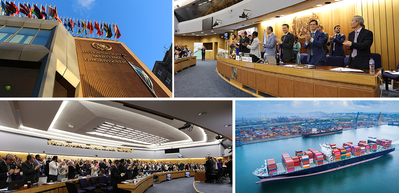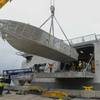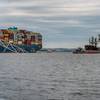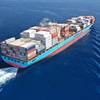MEPC 80: Action Taken on Range of Environmental Regulations
The IMO’s MEPC 80 session adopted the 2023 IMO Strategy on Reduction of GHG Emissions from Ships and advanced other environmental initiatives.
The revised IMO GHG Strategy includes an enhanced common ambition to reach net-zero GHG emissions from international shipping close to 2050, a commitment to ensure an uptake of alternative zero and near-zero GHG fuels by 2030, as well as indicative check-points for 2030 and 2040:
1. to reduce the total annual GHG emissions from international shipping by at least 20%, striving for 30%, by 2030, compared to 2008; and
2. to reduce the total annual GHG emissions from international shipping by at least 70%, striving for 80%, by 2040, compared to 2008.
Life cycle GHG assessment guidelines adopted
The MEPC adopted Guidelines on life cycle GHG intensity of marine fuels (LCA guidelines). The LCA guidelines allow for a well-to-wake calculation, including well-to-tank and tank-to-wake emission factors, of total GHG emissions related to the production and use of marine fuels.
Interim guidance on the use of biofuels
The MEPC approved an MEPC circular on Interim guidance on the use of biofuels under regulations 26, 27 and 28 of MARPOL Annex VI (DCS and CII).
Onboard CO2 capture
The MEPC considered a number of submissions related to onboard CO2 capture and agreed to instruct ISWG-GHG 16, if time permits, to consider the proposals related to onboard CO2 capture ahead of MEPC 81 and advise the Committee on a way forward.
Draft amendments to the Data Collection System (DCS) approved
The Committee approved draft amendments to MARPOL Annex VI regarding the revision of the IMO ship fuel oil consumption Data Collection System (DCS). The ISWG-GHG 14 session in March 2023 had discussed relevant proposals, noting broad support within the Group for the inclusion of data on transport work and on enhanced level of granularity of reported data in the DCS.
The draft amendments relate to MARPOL Annex VI Appendix IX on "Information to be submitted to the IMO Ship Fuel Oil Consumption Database" (relating to regulation 27), relating to reporting of data on cargo carried. They will be put forward to MEPC 81 for adoption.
Review of the short-term measure (CII and EEXI)
The short-term GHG reduction measures, CII rating, EEXI and enhanced SEEMP, entered into force on 1 November 2022. The MEPC approved the review plan of the CII regulations and guidelines, which must be completed at the latest by January 1, 2026.
Ballast Water Management (BWM) Convention Review Plan
The MEPC approved the Convention Review Plan (CRP) under the experience‑building phase associated with the BWM Convention, including the list of priority issues to be considered in the convention review stage. This will guide the comprehensive review of the BWM Convention over the next three years and the corresponding development of a package of amendments to the Convention.
BWM Convention amendments
The MEPC adopted amendments to appendix II of the Annex to the BWM Convention (Form of Ballast Water Record Book). They are expected to enter into force on 1 February 2025.
The MEPC also approved a BWM.2 circular on Guidance on matters relating to ballast water record-keeping and reporting.
Biofouling management
The MEPC adopted the revised Guidelines for the control and management of ships' biofouling to minimize the transfer of invasive aquatic species (Biofouling Guidelines), following a comprehensive review of the Guidelines.
Designation of a Particularly Sensitive Sea Area
The MEPC agreed to designate a particular sensitive sea area in the North-Western Mediterranean Sea (NW Med PSSA) to protect cetaceans from international shipping. Mariners should navigate with particular caution within the NW Med PSSA, in areas where large and medium cetaceans are detected or reported, and reduce their speed to between 10 and 13 knots as voluntary speed reduction. However, a safe speed should be kept, so that proper and effective action could be taken to avoid collision and any possible negative impacts on ship's manoeuvrability.
Addressing underwater noise
The MEPC approved revised Guidelines for the reduction of underwater noise from commercial shipping to address adverse impacts on marine life. The guidelines, issued as a circular, recognize that commercial shipping is one of the main contributors to underwater radiated noise which has adverse effects on critical life functions for a wide range of marine life, including marine mammals, fish and invertebrate species, upon which many coastal Indigenous communities depend for their food, livelihoods and cultures.
They include updated technical knowledge, including reference to international measurement standards, recommendations and classification society rules. They also provide sample templates to assist shipowners with the development of an underwater radiated noise management plan. They also provide an overview of approaches applicable to designers, shipbuilders and ship operators to reduce the underwater radiated noise of any given ship.
The MEPC approved the dissemination of an MEPC circular on Guidelines for underwater radiated noise reduction in Inuit Nunaat and the Arctic, developed by the Inuit Circumpolar Council (ICC). The guidelines recognize that Inuit Nunaat is a unique environment and adverse impacts to marine wildlife in this area from shipping noise may be significantly increased as a result. Sound levels throughout Inuit Nunaat are lower than elsewhere, making it more vulnerable to increases from industrial activity.
Tackling marine litter
The MEPC noted and concurred with the ongoing work in the Sub-Committee on Pollution Prevention and Response (PPR) to address the risks to the marine environment from plastic pellets. This risk has been highlighted by incidents, including the X-Press Pearl in 2021, during which 11,000 tonnes of plastic pellets were spilled off the shore of Sri Lanka. The MEPC noted that the PPR Sub-Committee has agreed that plastic pellets should not be carried in bulk.
Mandatory reporting of lost containers
The MEPC approved, for subsequent adoption, draft amendments to MARPOL protocol I referring to a procedure for reporting lost freight containers. Containers lost overboard can be a serious hazard to navigation and safety at sea as well as to the marine environment.
The draft amendments to article V of protocol I of the MARPOL Convention– Provisions concerning reports on incidents involving harmful substances, would add a new paragraph to say that "In case of the loss of freight container(s), the report required by article II (1) (b) shall be made in accordance with the provisions of SOLAS regulations V/31 and V/32."
Related draft SOLAS chapter V amendments were approved by the Maritime Safety Committee (MSC 107), to require the master of every ship involved in the loss of freight container(s) to communicate the particulars of such an incident to ships in the vicinity, to the nearest coastal State, and also to the flag State.
Ship-to-ship transfers
The Committee discussed a document aiming to raise awareness on the potential environmental risks and the consequences and concerns for the global marine pollution prevention and liability and compensation regimes relating to the increase in ship-to-ship transfers at sea. The document proposes a draft Assembly resolution to encourage and urge action, including enhanced monitoring of such operations. The Committee agreed to forward the draft Assembly resolution to the thirty-third session of the Assembly, together with the comments and views expressed at this session, for further consideration with a view to finalization and adoption by A 33.
Special areas
The MEPC agreed the effective date of January 1, 2025, for the Red Sea and the Gulf of Aden special areas under MARPOL Annexes I and V, based on information provided related to the status of available necessary reception facilities for MARPOL Annexes I and V wastes and residues, covering all the ports and terminals within the areas.
Inventory of Hazardous Materials
The MEPC adopted the 2023 Guidelines for the development of the Inventory of Hazardous Materials, following amendments to the Anti-fouling Systems (AFS) Convention to include controls on cybutryne.
Operational Guide on the Response to Spills of Hazardous and Noxious Substances
The MEPC approved the Operational Guide on the Response to Spills of Hazardous and Noxious Substances (HNS). The guidance is for first responders and decision-makers in preparation for and during a maritime incident at sea or in port, when such an incident involves HNS.
Electronic bunker delivery note - Unified interpretation to regulations 18.5 and 18.6 of MARPOL Annex VI
The MEPC approved a new unified interpretation to regulations 18.5 and 18.6 of MARPOL Annex VI, for inclusion in a revision of MEPC.1/Circ.795/rev.7 on unified interpretations to MARPOL Annex VI. The unified interpretation states that the Bunker Delivery Note (BDN) is acceptable in either hard copy or electronic format.
Reduction of Volatile Organic Compound (VOC) emissions
The MEPC agreed a scope of work on the Reduction of VOC emissions, prepared by the PPR Sub-Committee. This work would aim to investigate how the reduction of VOC emissions could contribute to the implementation of the IMO GHG Strategy and would consider how to involve terminals in the reduction of VOC emissions as well as current and potential new regulation and guidance.











